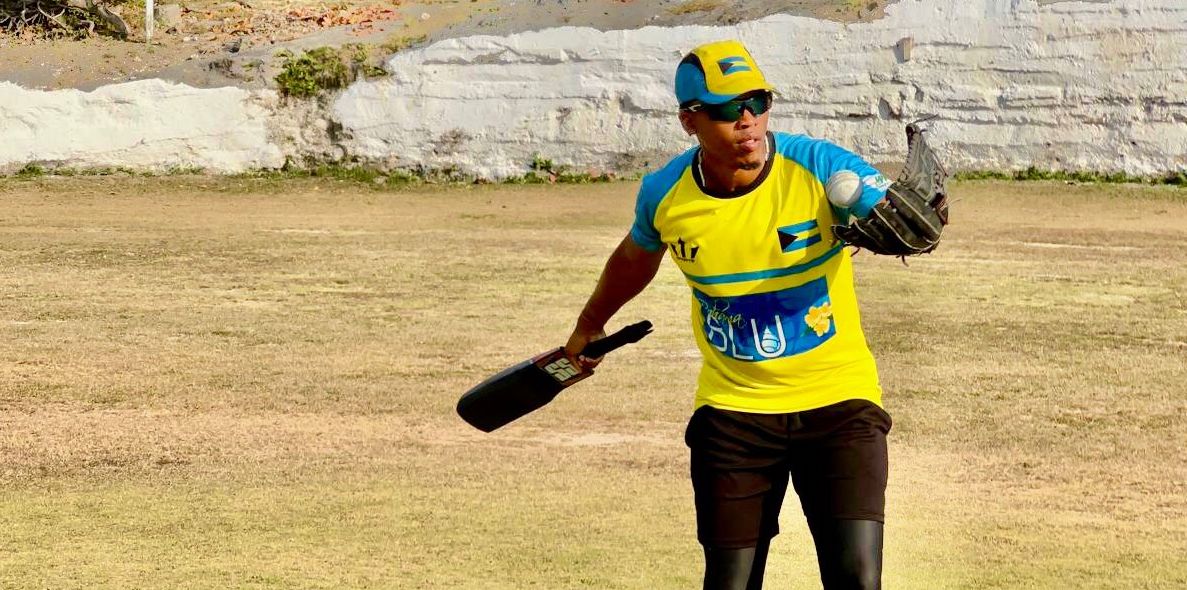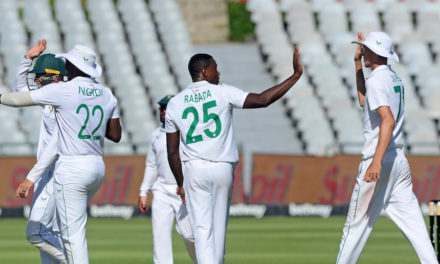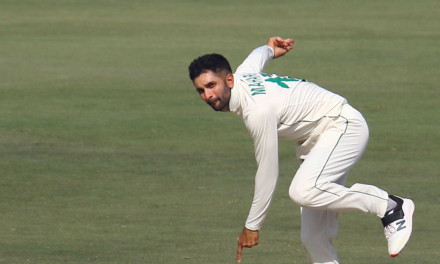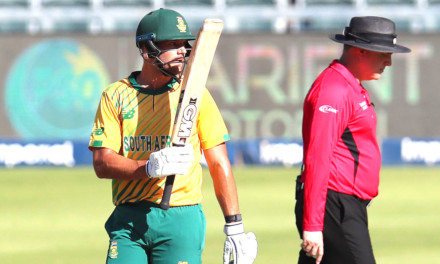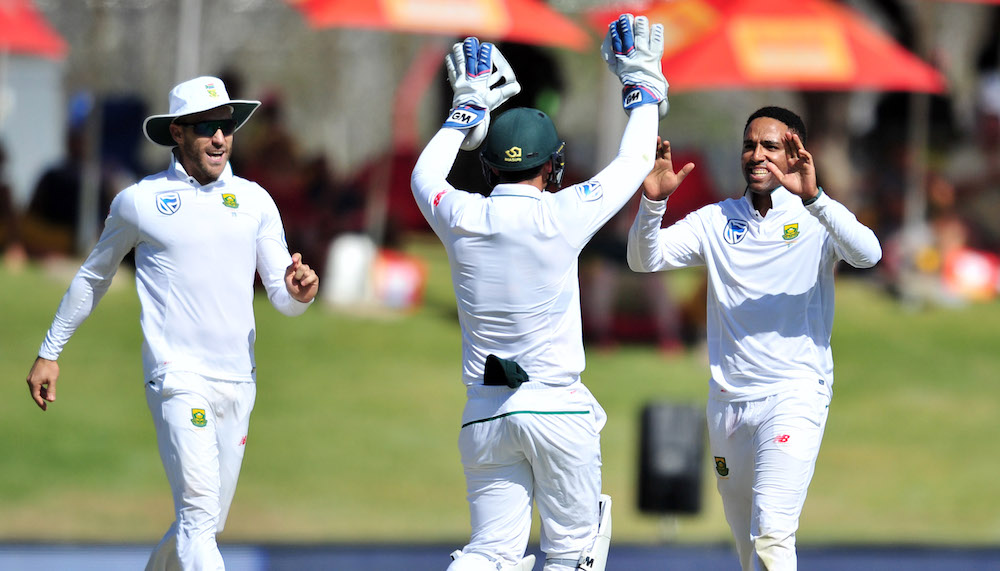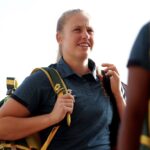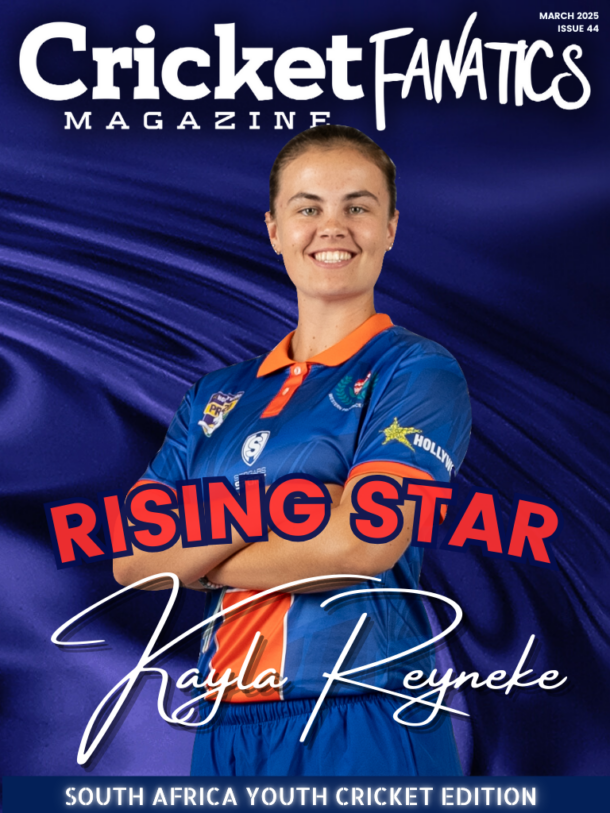Quality coaching and mentorship is a sine qua non for growth not only in the sporting world, but also in a wide array of career choices.
Ever since Nkululeko Serame rounded off his time as a player, he’s been involved in the coaching scene in South African cricket, much like many ex-cricketers. Lately, however, the prospect of continuing on the same path at home started to look relatively bleak, and the readiness to branch out has yielded plenty of dividends.
The change in scenery has very much been a breath of fresh air for Serame, who spent most of his post-playing career coaching at university level. Adjustment was fairly seamless, and his adopted home team has maintained their winning ways.
“So far, the Bahamas have been good to me. I have thoroughly enjoyed mentoring the youth that I coach and seeing them become an enhanced version of themselves,” said Serame to Cricket Fanatics Magazine.
“Hearing that many of the athletes I have worked with have been having their best performances ever, since we’ve worked on a few approaches to their individual game, means a lot to me as a coach because I measure myself on the improvement of the athletes I coach.
The final T20I against Cayman Islands is probably the biggest highlight. Although we chased down 170 in 15 overs in the third T20I, with both openers not out, the manner in which the team chased down 212 with 10 balls to spare in the final match was a real pleasure to watch.
This was the Bahamas’ biggest successful run chase and their biggest score in T20I. The way each player executed their role in that run chase was testimony of what they could achieve if they continued to believe in their skills set. That series really took the team’s belief to new heights.”
This is the first-ever coaching stint at a national level for the ex-Cobras offspinner, and understandably, getting to know everyone involved in the setup wasn’t necessarily the easiest process. However, prioritizing how to get the best out of everyone on a regular basis struck a chord, and his personal experiences have helped build confidence among the players.
Not everyone will have the same task at hand, and being able to maximize your skillset and potential is something that Serame has emphasized from very early on. In addition, the urge to play fearless cricket typifies his style of mentorship. On many occasions, we’ve seen some of the best teams fall short when they haven’t been able to capitalize on initial advantages.
“The initial challenge I faced in the beginning was to gain the players’ trust. Previously, the team had struggled to set big totals, let alone to chase them, and had played as individuals instead of as a team. This means that they lacked group esteem (did not genuinely believe that they could play consistently well as a team, despite individual talent) and that I would have to get them to trust the aggressive brand that I wanted us to play.
“I adapted to these challenges by creating a safe space for them where nobody would feel judged if they did not have a good day. A lot can go through a player’s mind during the competition phase and so I made sure they felt supported. I also made sure that we shifted our minds from competing with each other (for instance, there were about three to four players in the squad who opened the batting for their respective clubs and may have viewed each other as competition) to thinking about how they could contribute to the team.”
“Every playing role is unique, and being aware of what a significant contribution entails is central to striving for consistent excellence.
“I got the team to understand that a 35 from 18 balls when someone was batting at number 6, 7 or 8 was as good as a 100 from someone who was opening the batting, so we equally praised the guys who played those quick cameos in the last 6 overs of the game.
“Keeping the team chemistry is very important, and that also means that I had to communicate with the players on the bench that they too are valuable and that I would do whatever it takes to make sure that they are ready to execute their skill when needed and that they create healthy pressure for the guys in the starting XI.
“I am the kind of person who loves the pressure of working with players and getting them to perform. As a coach, one’s relationship with the players is like that of a movie script writer and the actors of the movie, so building trust, clarifying roles and supporting the players mentally is very important. That helped us to blossom as a collective.”
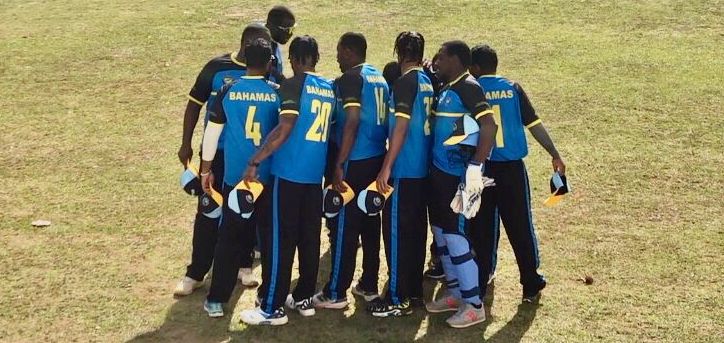
Before landing the gig in the Bahamas, Serame was patiently waiting and continuing to apply to various cricketing institutes both at home and overseas. He split his time between South Africa and club cricket in England, but several of his potential opportunities fell through.
Over the years, Serame has established himself as a tenacious, perseverant individual, and he didn’t lose hope at any point. Eventually, he got communication from one of his ex-coaches, and the rest was history. The level of passion and commitment that he brought to the table on a regular basis finally got rewarded, and the hard work paid dividends.
“I was at home in Matlosana with my family in October 2022 when I returned from Harrow St Mary’s CC in London and was planning to go to Omni Global Sports Academy which is based in Mumbai, India. They (Omni Global Sports) were planning on getting me to India from November 2022 until March 2023, and then I would go back to London (They met me in London when they toured there in 2022). Their founder suddenly stopped communicating but I am an optimist and assume that he may have gone through some personal things, since he was the one who was so enthusiastic to bring me to India when his Academy played my U23s in London.
“Shortly after that I applied for the Eastern Province Men’s Academy and U19 Head Coach role, had a great interview but unfortunately did not make the final nod. This was around late October 2022. I am a very secure person, so the rejection did not break my spirit at all, as I always judge myself on effort, not necessarily results.
“My mentor and former coach Andy Moles then got hold of me and told me that the Bahamas were searching for an U19 Men’s Head Coach as well as Senior Women’s Head Coach and recommended that I apply. I applied for that and got invited for an online interview by the Bahamas Cricket Association.
“A few weeks later the news came via email and a WhatsApp call that I had gotten the nod from them. I was with my brother when that happened, and we rushed home to share the news with family. I was delighted to get the offer. I always felt ready for it because cricket is an obsession for me. I read, live, watch, eat, sleep and dream about cricket, so I have been ready for something like this since 2018 to be honest.
“I immediately did well with the youth here so the board liked my approach to the game so they decided to put me at the helm of the senior Men’s team in the 2024 Carib Cup T20I series against the Cayman Islands in March/April this year. It was my first international series as a coach and I am very glad (but not surprised) that they played so well.”
It’s to no one’s surprise that the Bahamas have hit the ground running with Serame at the helm, but what stands out the most is the set of core values that have been instilled. Yes, more often than not, teams benefit from individual brilliance, but mutual goals are always primary. Furthermore, as much as hard work is important, being able to offer something unique and different can help anyone level up their skill set and rise through the ranks.
In recent T20 cricket, the inclusion of multiple all-rounders is becoming a more common trend. Consequently, there are more bowling options available, and the batting depth increases as well. The absence of either or both has been a pitfall for some of the best in the business. For instance, there should be a designated sixth bowling option among the top-6 batters, and the players who come in at #8 and #9 can’t be pushovers with the bat.
“As a team we have built a family. We all know what we expect of each other, and I always emphasize playing for each other. Everything we think, do or say MUST always be in the best interests of the team. That way we have an environment of truth, respect, honesty, and trust. I always look to have those as the four pillars of the team culture.
“Our brand is now ‘Total Cricket’. I came up with that philosophy from looking at how the Dutch and Barcelona football teams played ‘Total Football’ with a 4-3-3 formation where the team attacked and defended as a team. This was thanks to Johan Cruyff in the early to mid-1990s.
“Our brand is that to win, we must risk losing, so we play every over of the Powerplay aggressively as if it’s a super over, but we are always willing to risk losing two wickets. We look to do the same in the last 8 overs of the game and give a full license to our big hitters. We decided that we would rather be 200 all out in 17 overs than to be 180/6 in 20 overs. When bowling, we look to keep taking wickets because wickets bring pressure.
“If a bowler got hit a few meters over long-off’s head, we considered it not different from edging the ball meter to the right of slip for a boundary. So we bowled to very attacking strategies and batted to a very attacking strategy. That way we will lose two or three games out of ten, but we’ll win a lot more than we lose. I implemented that brand because it removes the fear of failure. Like I said, my players are like my actors, so I want them to enjoy making the movie, not to have stage fright.
“For the advancement of cricket in the Bahamas, I would like the team to play a few more bilateral series against other Associate nations like Bermuda and Canada for example. This applies also at the youth level. The more international cricket they play, the better they will become.”
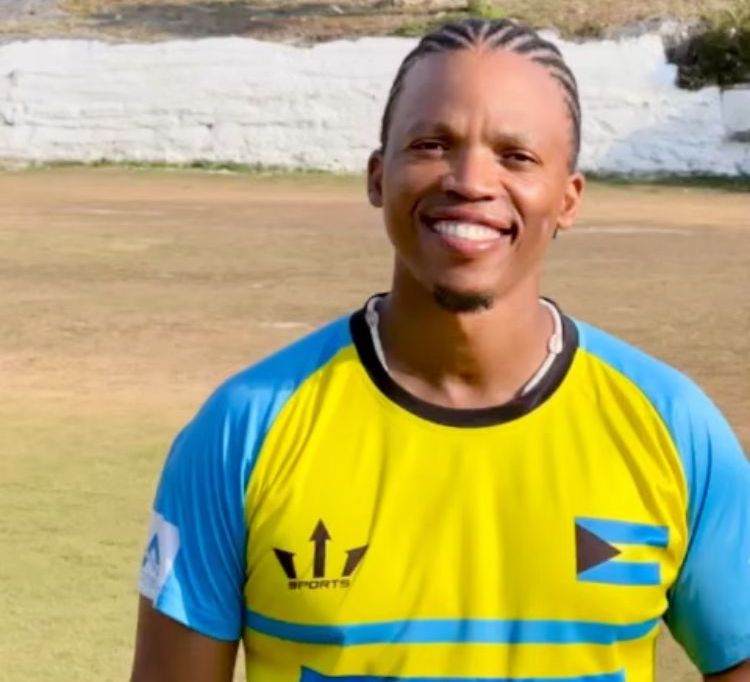
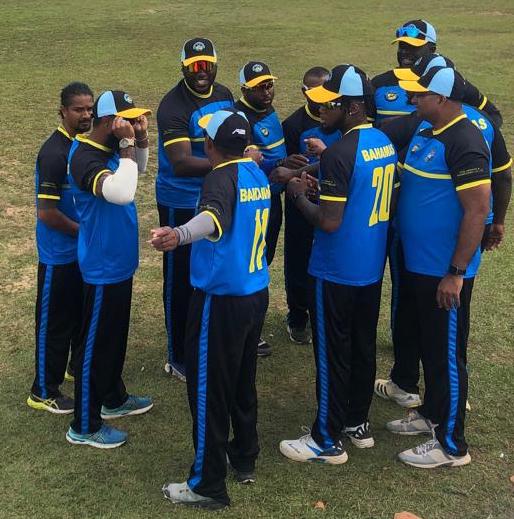
Serame’s playing career had several crests and troughs, and especially when there were times when he felt helpless, he was never ready to throw in the towel. All his cricketing personal experiences have come in handy to mentor a group of cricketers who are finding their feet at the international level and aspiring to achieve more and more.
“My experiences as a player have allowed me to understand the kind of support that players need from a coach, as they can have a lot of anxiety, thinking about whether the coach will still select them if they have a bad day, or to feel uneasy if there is a new player in the team who is in better form. Players also perform better when they are happiest, so I make sure the environment is one that builds belief and where each player feels valued, recognised and appreciated.
“As a coach, I see my job as being one where I help people to change and become an enhanced version of themselves technically, tactically, mentally, physically and in how they live their lives as human beings. That requires one to observe and listen more than one speaks, but also for one to be empathetic, have a sense of humour and also to have the courage to change, otherwise one won’t be able to inspire the players to change and take on new challenges to their game.
“Prior experiences where I observed (as a player) quality coaches like Andy Moles and Charl Langeveldt, as well as making a trip from London to Leicester in 2016 to have a 2-hour conversation with Saqlain Mushtaq then having conversations I recorded with Ricardo Powell and later with Kieron Pollard about different aspects of the game and how players and teams can improve, have had a big impact in some of my approaches to managing players and teams.
“I also worked a lot with a sports psychologist, Adrian McInman, who taught me a lot about how to help people perform at their best. Those moments are largely the reasons why I felt more than ready to coach the Bahamas national men’s team, and why I don’t feel intimidated at all by coaching at the international level, if anything, I feel excited. I am someone who never backs away from a challenge. I am looking forward to even bigger matchups with higher stakes.”
As of now, Serame has earmarked standout talents in the island country, and there are several such promising youngsters raring to throw their hats in the ring for higher honors.
“The captain and opening batter Marc Taylor, who also bowls some off-breaks, is a dangerous hard-hitting batter, hence he is nicknamed ‘the Baby Gayle’. He finished the series as the top runs scorer, amassing 240 runs in 5 matches at an average of 60 and a strike rate of 193.55.
“23-year-old Kevon Hinds is also a very immensely talented all-rounder. He bats in the top order, scores big runs at a strike rate of 171.43 and apart from being a very athletic fielder, bowls very good left-arm spin in the powerplay and at the death (going at under 7 runs per over). He may be invited to the West Indies Cricket Academy as he has a Jamaican parent. T10 and T20 teams should sign him up now while he is not yet known.
“16-year-old Waterphal Johnson is another bright star to look out for. She was invited to the ICC Americas Women’s High Performance Camp that took place from 11-14 June in Fort Lauderdale, Florida.”
Associate cricket teams are continuing to create an impact, and that may as well be the understatement of the year. Team USA scored a brilliant win against Pakistan in the T20 World Cup, and now they’re in the Super 8 stage. They were ranked 17th out of the 20 teams involved, and even though one would claim they’ve defied the odds, the team’s self-belief has taken them a long way.
Now that Serame’s in the mix, Bahamian cricket is only headed upward, and there have been results to show for it. They won a T20I series against the Cayman Islands, a team that’s been involved in multiple T20 World Cup regional qualifying tournaments.
Establishing themselves on the map has been off to a solid beginning, and soon enough, the CPL could be within striking distance. We’ve seen multiple American and Canadian players make the grade at this level, and more exposure in high-quality environments will only speed up the development.

